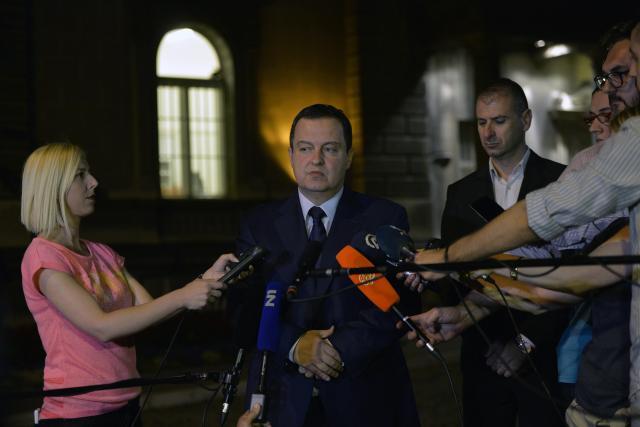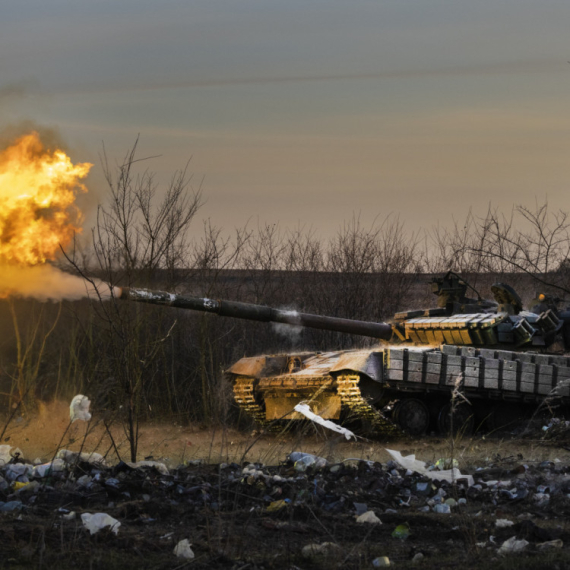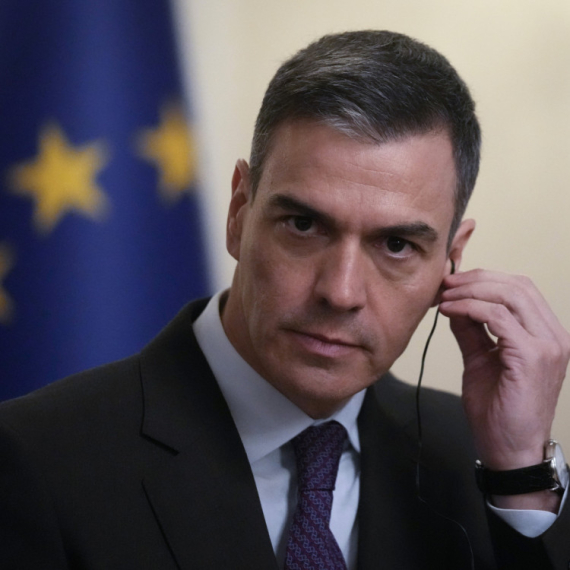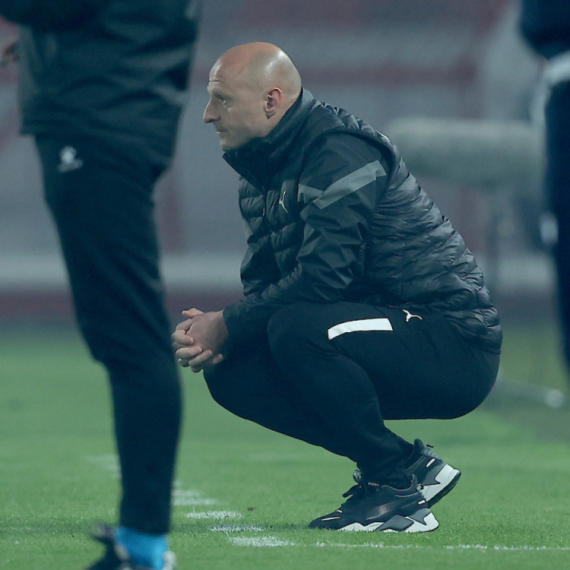Changing policy toward Russia and China would be "suicidal"
Serbia's goal should be to "reboot" its ties with the U.S., but also continue good relations with Russia and China, says Ivica Dacic.
Monday, 02.01.2017.
14:29

Changing policy toward Russia and China would be "suicidal"
According to Dacic, Serbia is not pursuing a policy of balancing between the West and Russia, but is instead protecting its national and state interests - and will not change its policy towards Russia and China as long as these are the only countries in the UN Security Council protecting Serbia's interests.Noting that Serbia is "destined to be in the EU because it is not in Asia but in Europe," Dacic said that once this has been accomplished the country will have a say in EU's foreign policy - but that it would be "suicidal" for Belgrade to now change its policy toward Russia or China.
"They vetoed the (UNSC) resolution on Srebrenica, Russia did. If someone puts forward Kosovo's membership in the UN, they'll veto that, too - and now we're supposed to vote for something condemning Russia or China. Is this normal? Or for instance, yesterday the ambassador of Iran was here. Should we now go and plead with Iran not to recognize Kosovo, having regularly voted against Iran? Well, we're not voting against Iran any longer. That's the change in our policy," Dacic said.
"Nobody can hold defending Serbia against us. Only if someone thinks we should enter the EU by destroying Serbia, which... no one should think... When Great Britain, the U.S., France, Italy and others, when these have become the countries with whom we can protect our national and state interests, then perhaps we can look with new eyes at all these problems. Until then, while the only countries that can protect our interests are Russia and China at the level of the (UN) Security Council, it would be suicidal to change our policy," Dacic said.
Asked how Serbia may be able to pursue a policy of balancing between the West and Russia with regard to the desire to join the EU, Dacic said this was "not about balancing, but about preserving national and state interests."
"That is not at all a policy of balancing, this is our path, even St. Sava spoke about it. We (are) the West in the East, the East to the West. What can we do, when that's our geostrategic position? We are going toward the EU, but while at it, we want to preserve our national and state interests. That is completely legitimate," said Dacic.
He said that Serbia "wants to go the EU" but also that the interests of some Western countries are contrary to the interests of Serbia. Dacic said that Serbia could view international relations differently "if the leading Western powers were the countries with whom Serbia could cooperate on the protection of its interests."
"Let's not be ashamed to protect and defend Serbia, this should be the cause of greatest pride. We have arrived at a point where we're supposed to justify ourselves in front of everyone here in Serbia, anyone who is an outpost of the Western countries who have different national and state interests. They are opposed to our interests. And that's nothing tragic, it is the reality until we forge some better relations," said Dacic.
Dacic said that cooperation with outgoing U.S. Secretary of State John Kerry was "good," but that he hopes for "improved relations" with the new administration of President Donald Trump.
"I think it is tragic that our relations had fallen to such a level, that in the end there was the bombing (of Serbia). We need to look for a common denominator, and I hope that we'll be able to change that with the new administration, because, frankly, the Clinton administration, both Bill and Hillary, have all these years only sought to justify their policy from the 1990s. We're not looking for someone to condemn that policy, but we are looking to move on, but not based on the old, spent files. New denominators must be found. Serbia has changed, and so has the United Stated," said Dacic.
He added that this "common interest" must be found "for the sake of peace, stability and security in the region."
"Serbia will invest the most in that, will be forced to compromise the most, and we are aware of that, because we are the biggest nation and the biggest country (in the region), and we are ready for that, the only thing we're not ready is to pay the price for the international community's double standards to the detriment of our state interests," Dacic said.
According to the foreign minister, last year was marked by Brexit and Donald Trump's victory. These events will cause a "tectonic" change in international politics that Serbia should follow, he said.
"The EU now has a lot more of these internal problems, which means the need for a discussion on the functioning and organization of the EU itself, in order to prevent other countries going down the road of exiting the EU," said Dacic.
Brexit, and Trump's victory, "will probably lead to other changes, such as the right-wing candidate's victory in the elections in France," he added.
"There will likely be a redefinition of global foreign policy," Dacic said, noting that Trump has announced a new position of his country in the world - less interventionism, closer ties with Russia, more confrontational relations with China.
"So Serbia must follow all these trends, and simply not be surprised by the changes taking place in the world," he added.
As for 2016, and "the significant steps forward" made by Serbia's foreign policy, Dacic singled out the development of relations with "a number of major countries." According to him, there have been neither "bad moments nor failures" in the Serbian foreign policy during last year.
"I think our biggest success is that there's now the possibility of developing good relations with a number of major countries. From Russia and China to the United States, Great Britain; to continue our path towards the EU, regardless of being faced with numerous cases of conditioning by some of our neighbors, especially Croatia, but also the constant condition of making progress in the dialogue with Pristina, for which Serbia is not responsible, because the biggest problem in implementing the Brussels dialogue is on the Albanian side, because they do not implement what is the essence of the Brussels agreement," he said.
A challenge in 2017 will be to "preserve the positions of countries around the world on the issue of non-recognition of Kosovo's independence, since Pristina is constantly on the offensive," Dacic said, and added:
"Next year, the General Assembly of UNESCO awaits us again. It is expected that Kosovo will once again file its request for admission. We will lead that struggle of ours all over again, under unequal conditions, while they will act with great support, logistical and every other, from some Western countries, and from Islamic countries," said Dacic.
During the interview he gave the Belgrade-based news agency, the Serbian foreign minister also spoke about relations in the region.













































Komentari 5
Pogledaj komentare